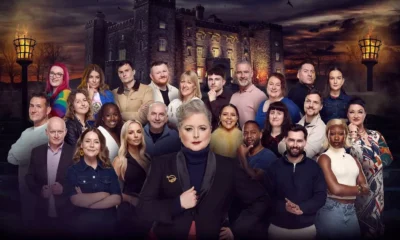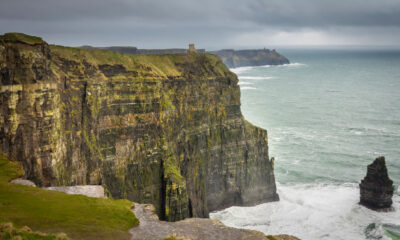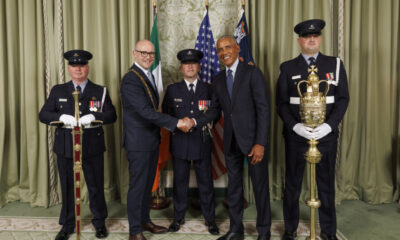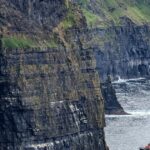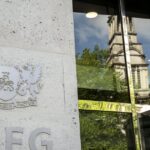Breaking News
Blaze at asylum hotel being treated as hate crime
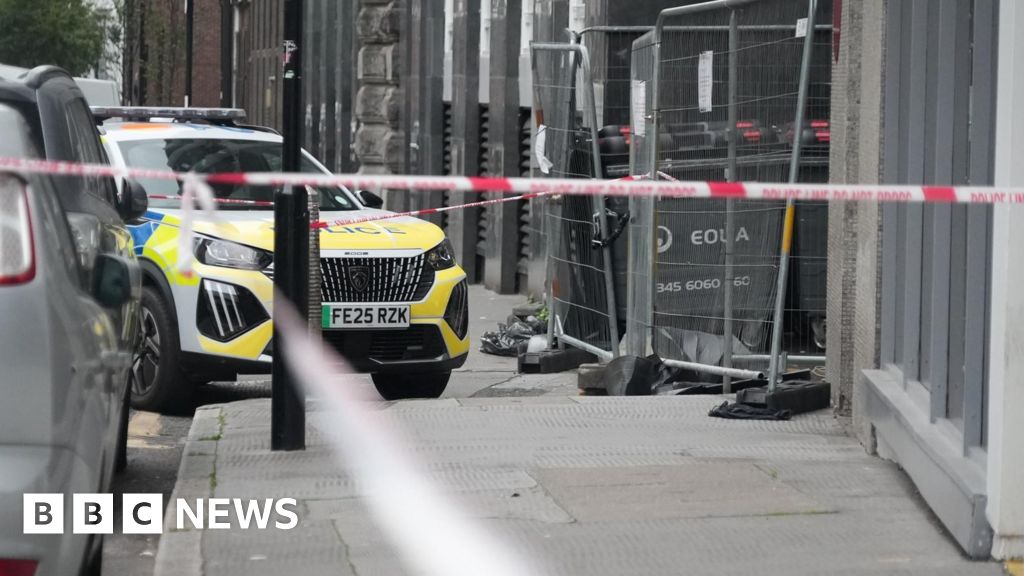
Read more on post.
A fire at a London hotel housing asylum seekers is being treated as a hate crime and has been condemned as a “despicable and cowardly attack”.
The blaze at the Thistle City Barbican Hotel, in Dingley Road, Islington, happened at about 22:50 BST on Wednesday, according to the Met Police. No-one was hurt and staff put out the flames before officers arrived.
The force said it was an isolated incident and it wanted to identify one suspect, while it was keeping an open mind about motive. There have been no arrests.
Islington Council leader, Una O’Halloran, and local MP Dame Emily Thornberry said: “We utterly condemn this despicable and cowardly attack that has no place in our community or society.”
Their statement added: “Islington is a proud beacon of tolerance and diversity that welcomes people from all over the world.”
Attempts to divide would fail, they said, adding that “this kind of violence can never be the answer”.
“Anyone who seeks to incite hatred or violence has no place in Islington,” they said.
The Met Police’s Cdr Hayley Sewart said: “This is being treated as a hate crime and we are working at pace to locate the suspect.”
The force is appealing for witnesses.
Nine people were arrested after a protest and counter-protest took place outside the hotel in August.
Breaking News
Inquest hears friends’ accounts of student’s fatal fall at Cliffs of Moher
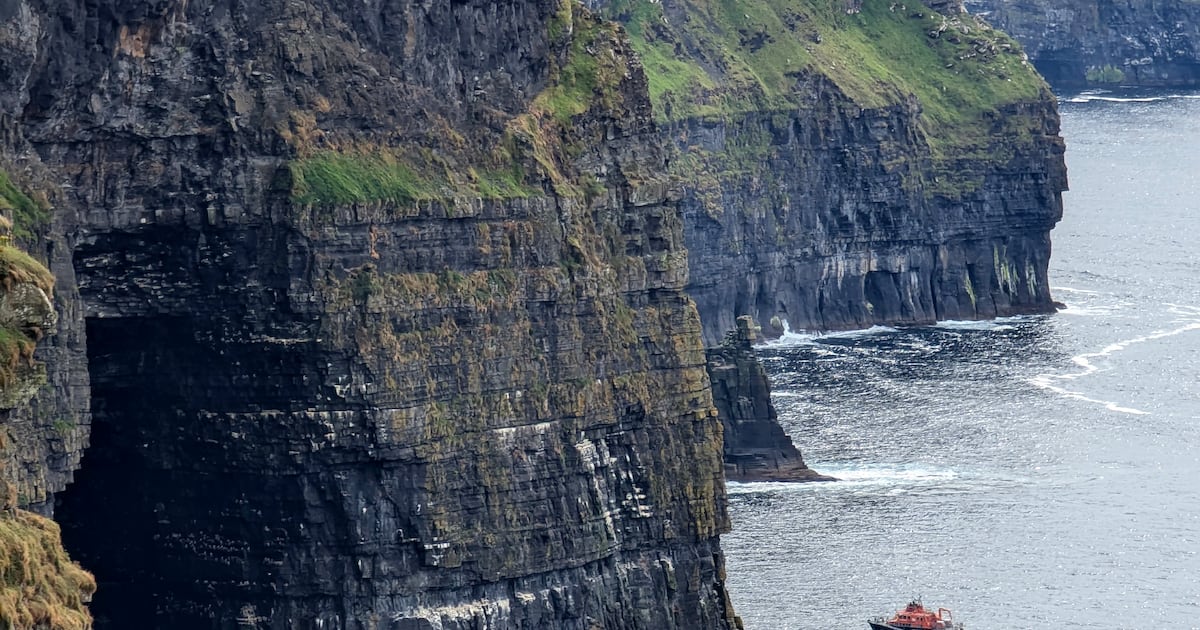
Read more on post .
A 20-year-old University of Edinburgh student slipped and fell to her death while walking on a muddy part of a trail beside the cliff edge at the Cliffs of Moher in May 2024, an inquest has heard.
At the Clare Coroner’s Court in Kilrush on Friday, eyewitness testimony of three college friends of Roxan Bastaens’ final moments before she fell was read out in evidence.
Members of her family had travelled to Kilrush for the inquest.
It heard that four female friends, two French, one Italian and Belgian national Bastaens had arrived at nearby Doolin the night before the incident with the intention of hiking in the area.
In her evidence, Italian-born college student, Guilia Bracchi said she was walking behind Bastaens when her friend fell.
“The trail was protected at the beginning, but later on it got slippery and there was no barrier,” she said.
Ms Bracchi said that conditions were calm and “we all had hiking boots on. It was not difficult. There were hundreds of people on the cliffs. The impression was that the trail was safe.”
Ms Bracchi said Bastaens had her camera in her hand and was looking at her steps as she walked around a big puddle.
She said she saw Bastaens’ foot going to the side where the trail was muddy and “she fell forward and she started tumbling down and I tried to catch her, but I couldn’t. It all happened so fast.”
Ms Bracchi added: “I looked down and I saw her hit off the cliffs twice and then she then went out of sight.” Moments later, she could see her friend’s body face down in the water.
Bastaens was weeks away from celebrating her 21st birthday.
County coroner Isobel O’Dea gave a verdict of “accidental death”. She told the family: “Unfortunately, we have a number of deaths at the Cliffs of Moher each year and this was an absolute accident.”
She said Bastaens’ blood sample was negative for any alcohol or drugs.
Ms O’Dea said that the postmortem found she died as a result of polytrauma as a result of a fall from a height. Bastaens’ death, she said, “would have been instantaneous and she wouldn’t have suffered”.
On August 22nd of last year, the Clare Local Development Company closed off large sections of the Cliffs of Moher trail, and they remain closed due to safety concerns.
Breaking News
Bloody Sunday: Soldier F trial set to resume with witness evidence next week
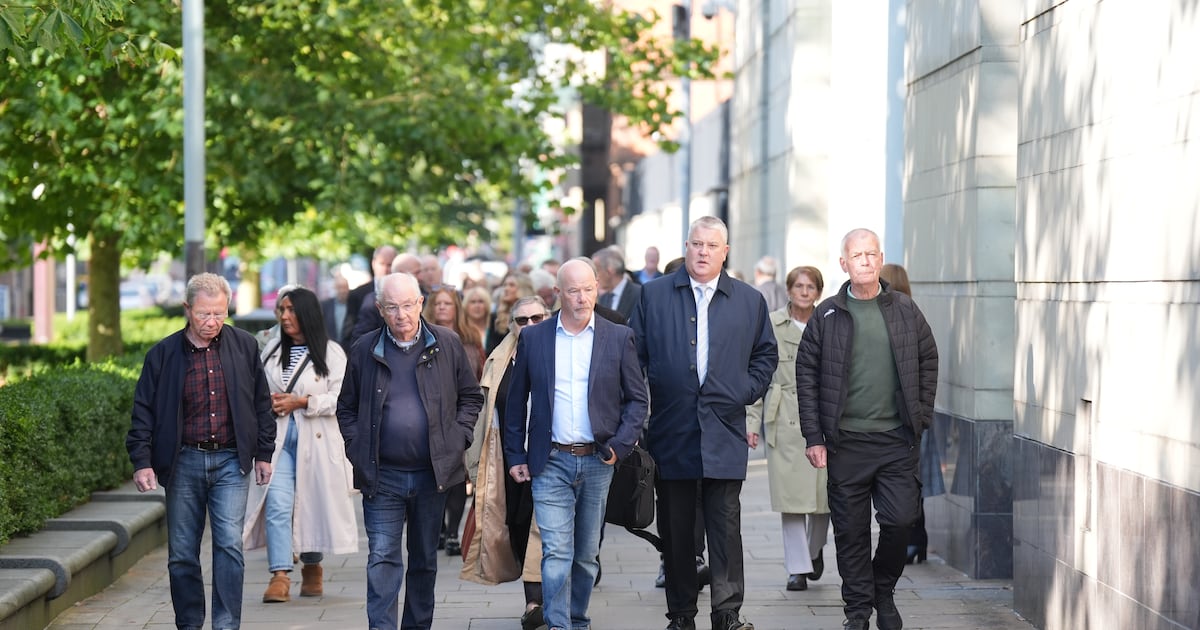
Read more on post.
The trial of a former paratrooper accused of the murder of two men on Bloody Sunday in Derry in 1972 is set to resume next week.
The non-jury trial at Belfast Crown Court will hear evidence from three men who survived the shootings as well as civilian witnesses and former soldiers.
It comes after Judge Patrick Lynch on Wednesday ruled that key hearsay evidence can be admitted as evidence in his trial.
He granted an application by the prosecution to admit a number of statements made by other soldiers on the ground during the shootings on January 30th, 1972, which the defence had argued were not reliable.
Members of the Parachute Regiment shot dead 13 civilians in Derry on Bloody Sunday after a civil rights march.
Soldier F, who cannot be identified, is accused of murdering James Wray and William McKinney.
He is also charged with five attempted murders during the incident in the city’s Bogside area, namely of Joseph Friel, Michael Quinn, Joe Mahon, Patrick O’Donnell and a person unknown.
He has pleaded not guilty to the seven counts.
He sits in the courtroom behind a curtain during each day of the trial.
The court sat for a brief hearing on Friday, and heard that the trial will resume next Wednesday morning, and is expected to last between two to three weeks.
[ Bloody Sunday: Judge rules evidence against soldier charged is admissableOpens in new window ]
There was some discussion around witnesses being subjected to cross-examination, with Mark Mulholland KC, for the defence, arguing that they were “quite exhaustively questioned at the lower court”.
“After the various years of media, Saville [inquiry] sittings, being at the hearings, what has occurred even in the last few years of these proceedings, there is a risk of innocent contamination,” he said.
Judge Lynch said he thinks cross-examination should take “more or less its normal form”.
The trial will sit again next Wednesday.
Breaking News
Starmer pushes immigration front and centre to fight Farage

Read more on post.
It is less than a year since the prime minister set out his “six milestones” – goals against which he wanted to be judged come the next election.
At the time, immigration did not feature as a priority.
Now, it is front and centre.
That shift is largely due to the rise of Nigel Farage, highlighted again today in a major new poll from YouGov that suggested a Reform government would be a near-certainty if a general election was held tomorrow.
There is – of course – not an election tomorrow. Sir Keir Starmer is expected to have another few years for his attempt to stop that from happening.
That fight was, he told a conference of left-wing world leaders today, a “battle for the soul of this country”.
He said the “defining political choice of our times” was between those who want a “patriotic national renewal” and the “politics of predatory grievance”.
This was Sir Keir at his punchiest attack, primarily against Reform UK and Nigel Farage.
Perhaps more unusually, Sir Keir also hit back against US President Donald Trump.
He appeared to mock the president when he said London was not “the wasteland of anarchy” it was sometimes portrayed.
Trump, of course, is among several politicians to have criticised the capital recently, telling the UN London had “totally changed” and under Mayor Sadiq Khan wants “to go to Sharia law”.
Sir Keir said social media had created “a sort of industrialised culture of grievance, and entire world – not just a world view – created through our devices” that was “demonstrably untrue”.
His subversive reflection was that centre-left parties had been “squeamish” about saying things that were “clearly true” about controlling borders.
The solution was digital ID – long hinted at by government, now confirmed.
The justification is twofold. One, that it will make it easier to crackdown on illegal working, reducing the attractiveness of the UK to those crossing the Channel in small boats.
And two, that it will make everyday life easier, from proving your address when you go the council skip, to registering for benefits.
Other parties are united in their opposition. The Conservatives and Reform say it will not stop illegal working.
The Liberal Democrats and others raise concerns about privacy and civil liberties.
There is already confusion about what exactly the primary motivation is.
The former Labour Home Secretary Lord Blunkett criticised the reforms for not being strong enough.
“I’m mystified because we are living in an era of conviction, high-profile, shake-the-tree politics, and this looks like a whimper,” he told BBC Radio 4’s, World At One.
“Why aren’t our people coming out and arguing this case full on? We need conviction politics now and we need it urgently.”
None of this will be quick. There will be an official government consultation now, before legislation is brought to parliament. Then if it eventually becomes law, there will be a period of implementation.
Despite those calls for extra toughness, this has the potential to be a dividing line for Labour on something it believes the public support, despite more than a million people signing a petition against the idea.
But also – if it eventually becomes law – this could be a defining legacy for Sir Keir and this Labour government.
-
Politics3 days ago
European Parliament snubs Orbán with vote to shield Italian MEP from Hungarian arrest
-
Culture3 weeks ago
Life, loss, fame & family – the IFI Documentary Festival in focus
-
Health4 days ago
EU renews support for WHO’s Universal Health Coverage Partnership
-
Culture2 months ago
Fatal, flashy and indecent – the movies of Adrian Lyne revisited
-
Environment7 days ago
Key oceans treaty crosses threshold to come into force
-
Culture4 days ago
Twilight at 20: the many afterlives of Stephenie Meyer’s vampires
-
Culture1 week ago
Farewell, Sundance – how Robert Redford changed cinema forever
-
Culture4 weeks ago
What is KPop Demon Hunters, and why is everyone talking about it?




